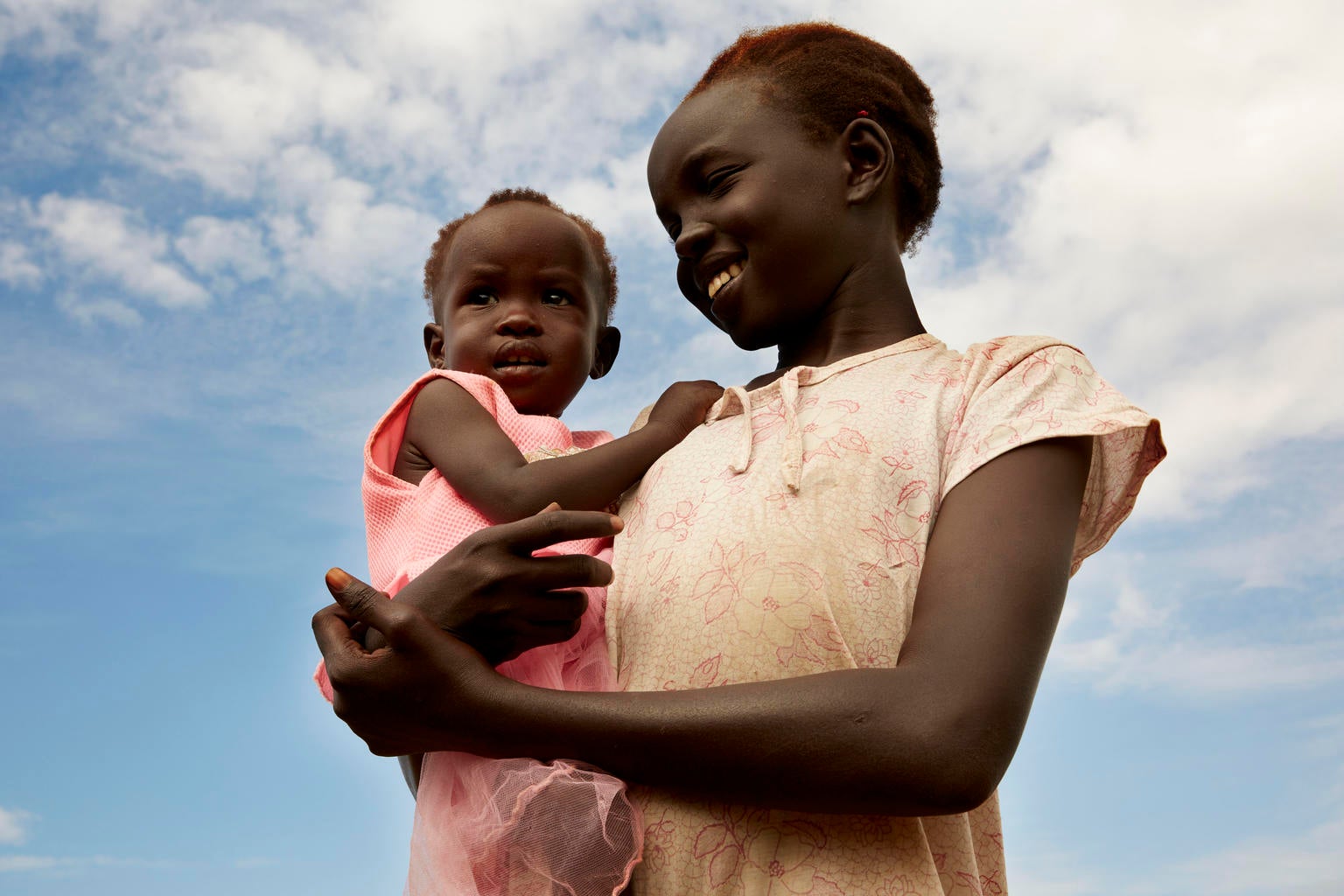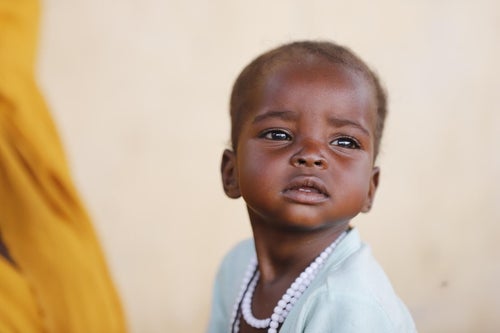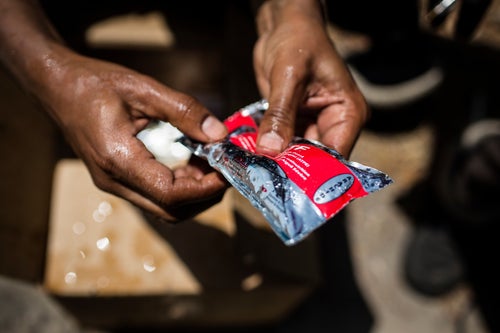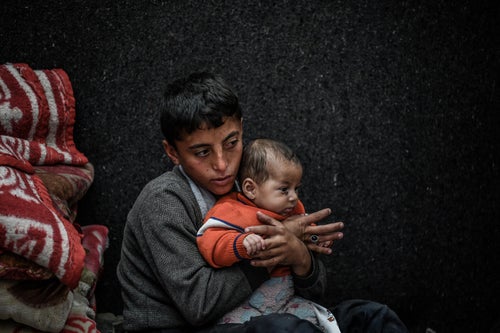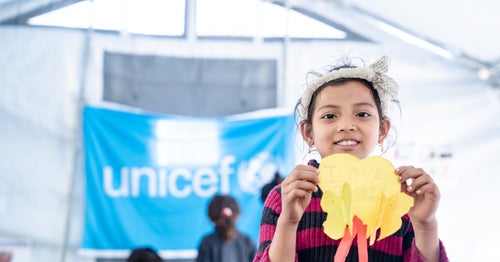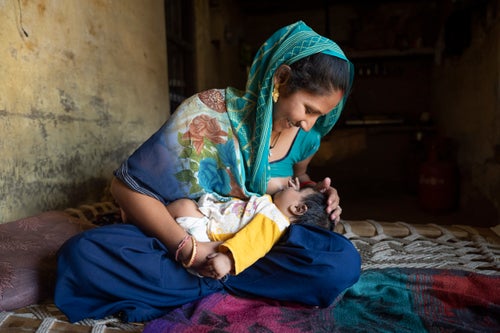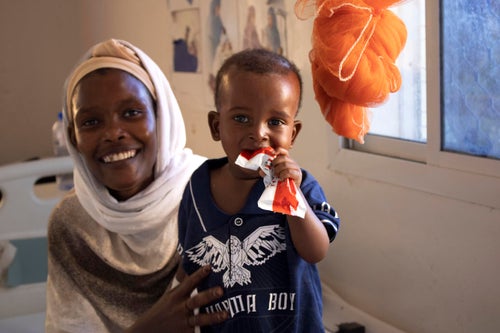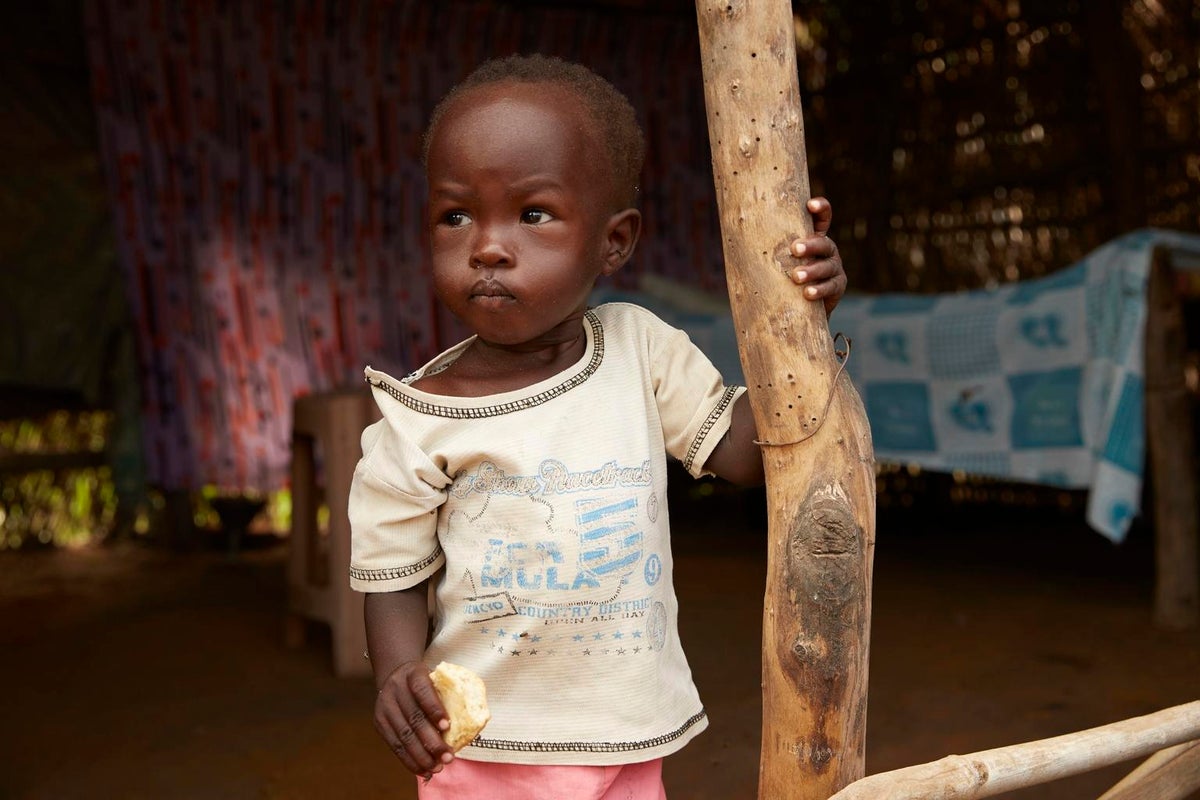
Week 1
Adut watches on as children run around her home in South Sudan. She refuses to take a step and holds onto support to stand.
Only 14-months-old, Adut has had repeated malaria infections and is not eating much these days. Every bite is a struggle. As a result, she doesn’t have the muscles and the energy to stand or walk alone.
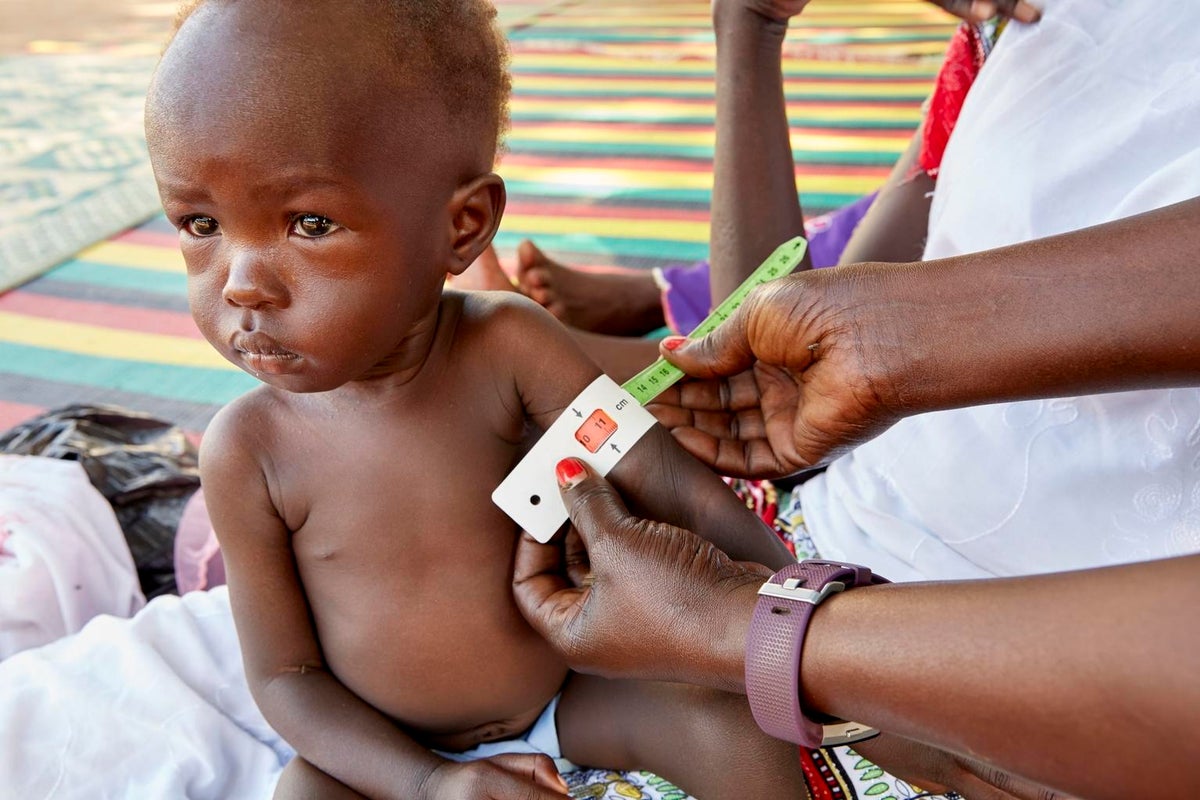
At a healthcare centre in Aweil, South Sudan, a nutritionist gently examines Adut. Her mid-upper-arm circumference shows she is severely malnourished and in need of immediate treatment. She weighs just 6.5kg – the normal weight of a child half Adut’s age.
Without treatment, severe acute malnutrition (SAM) can be deadly for children because the body doesn’t have the capacity to fight even simple diseases. In 2019 alone, an estimated 260,000 children under the age of five are suffering from the condition in South Sudan.
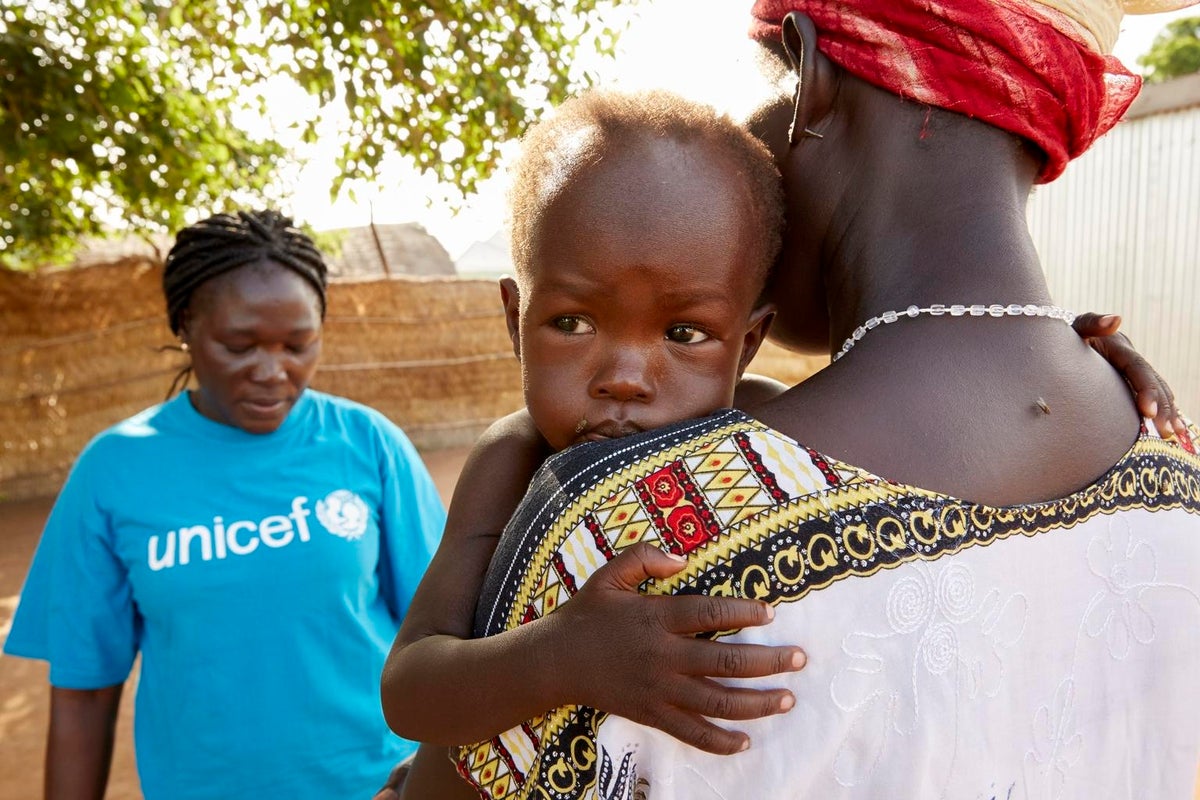
Adut’s mother Angelina is feeding Adut emergency food called Plumpy’Nut ®.
Plumpy’Nut ® is a peanut paste enriched with vitamins and minerals specially designed for treating children suffering from acute malnutrition. It has a sweet taste, making the ‘medicine’ easier to eat for the children who often don’t have a strong appetite.
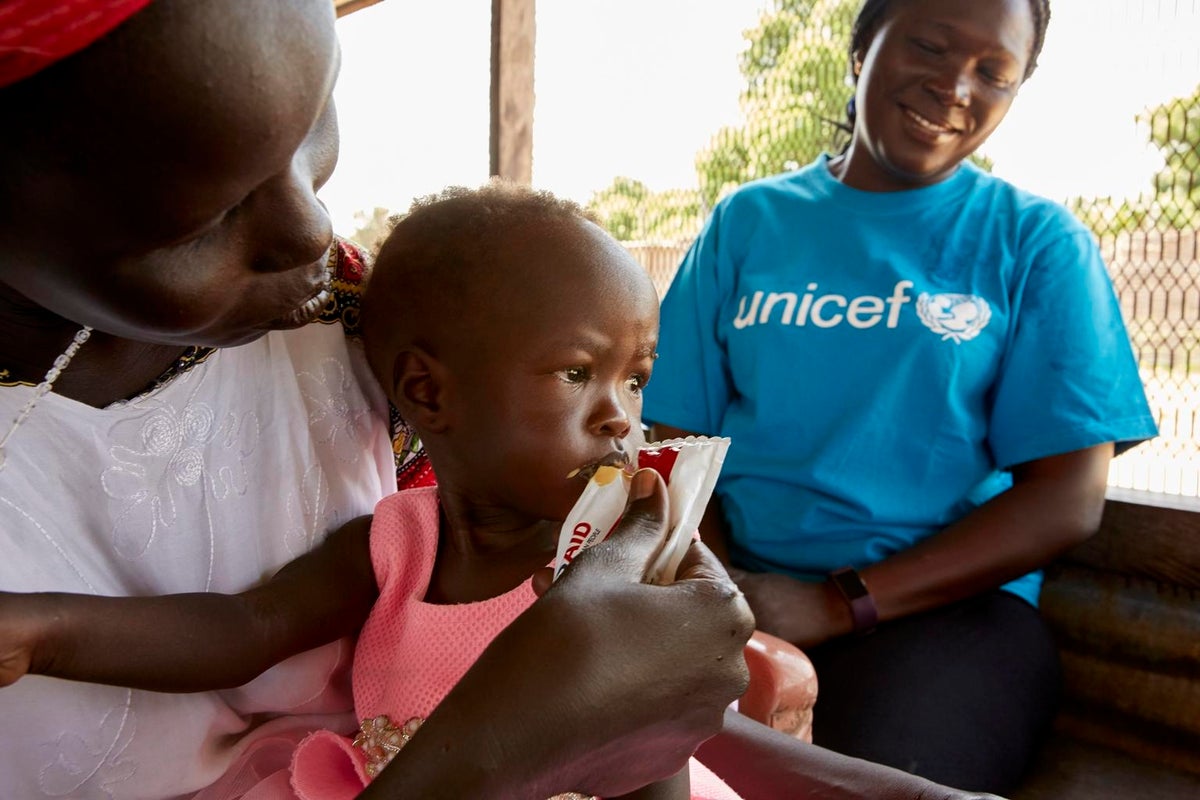
Week 5
After five weeks in the UNICEF supported nutrition program, Adut is already more active and regaining energy. Normally, it takes six to eight weeks for a child to recover from severe acute malnutrition.
Adut’s father William is pleased to see her improvement. He has been very worried about his daughter.
“Sometimes I don’t sleep, I just think, how can I help Adut?" William says. "You know, she will be the last one. We have eight children in total and she is the last and that is as special as the first.”
"Sometimes I don't sleep, I just think: How can I help Adut?"
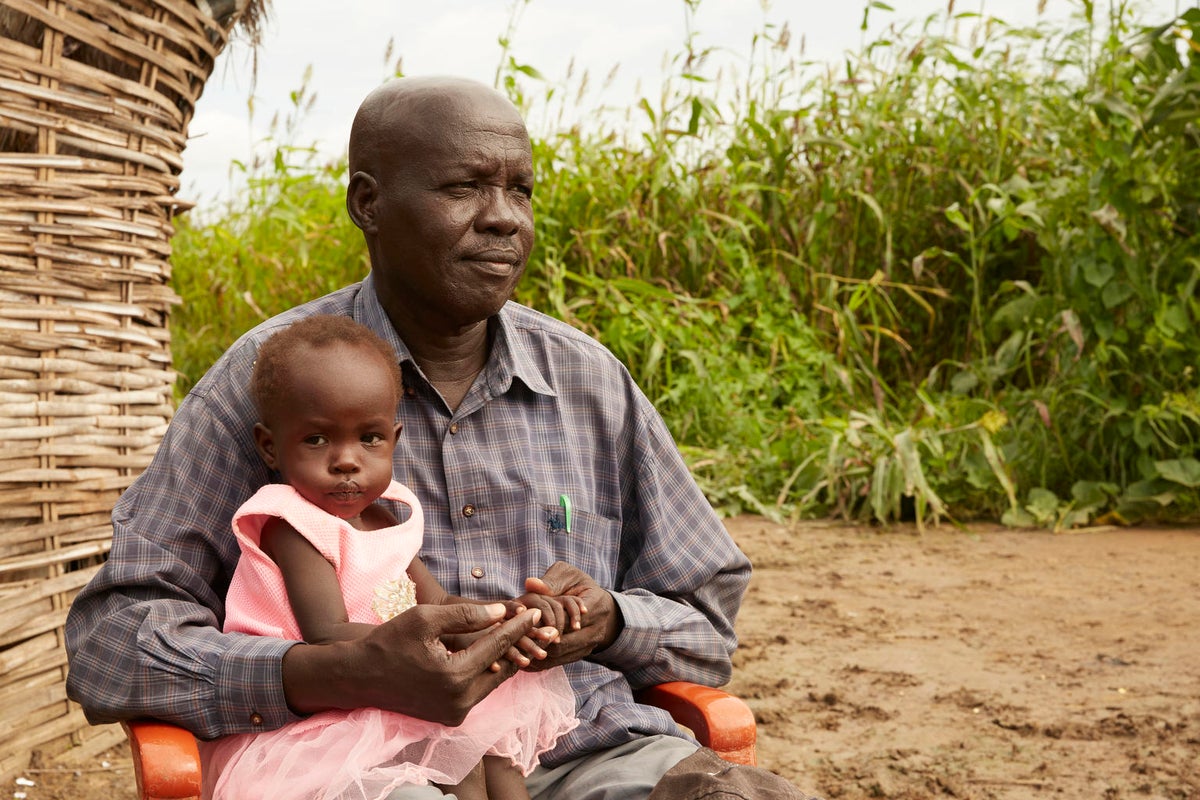
Week 8
Adut is discharged from the nutrition program after eight weeks and is walking around the house without holding on to anything or anyone.
“Her body and her face are now healthy and there is no more sickness. She's really moving on well without any problems,” says mum, Angelina, grabbing Adut and placing a big kiss on the now chubby cheeks.
“Now that she's healthy she's so playful. She will enter the house and go out again, and you can even send her to go and bring something and she will bring it to you.”
Donate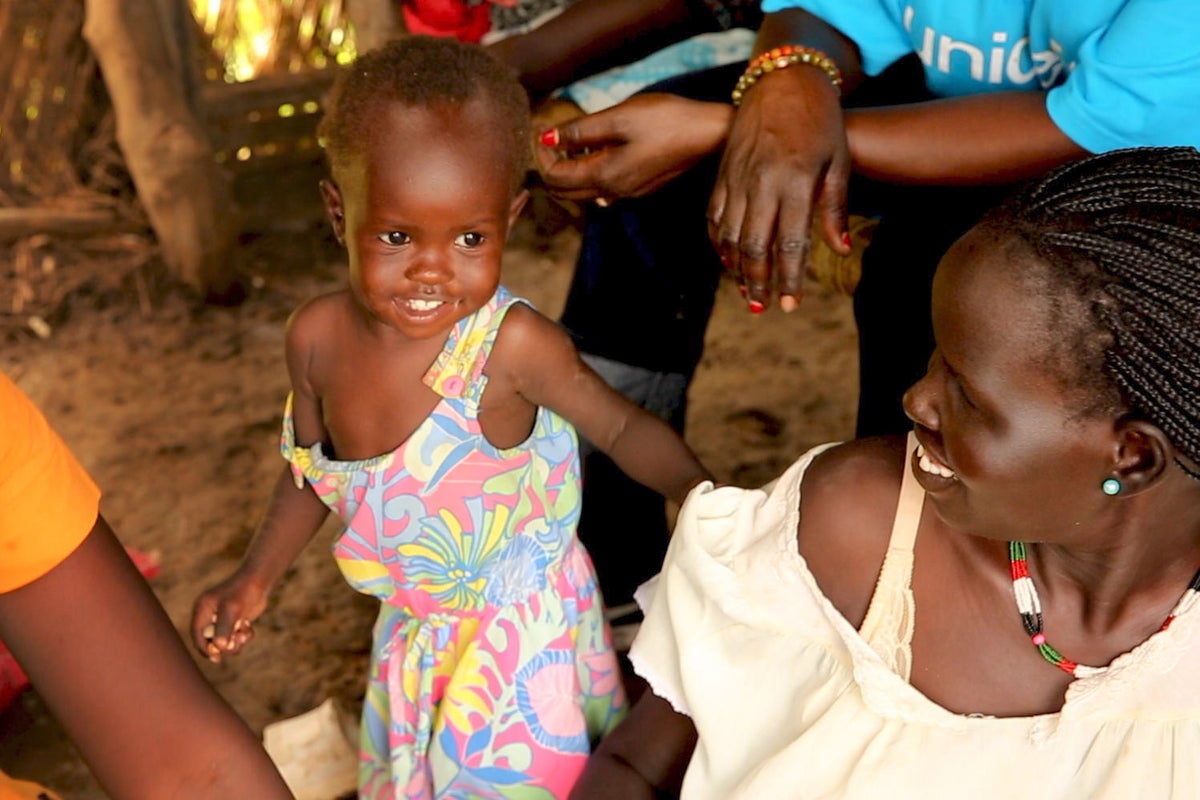
UNICEF nutritionist Jesca Wude Murye has stayed with Adut for eight weeks and has noticed a big change.
“In addition to gaining weight, Adut’s hair colour has returned to normal and her skin is shinier. She is walking around and her smiles are much more frequent,” says Jesca.
Adut’s father William thinks his daughter will do well in life now that she is well. “Someday, she will be a minister, or even prime minister. Why not?” he says.
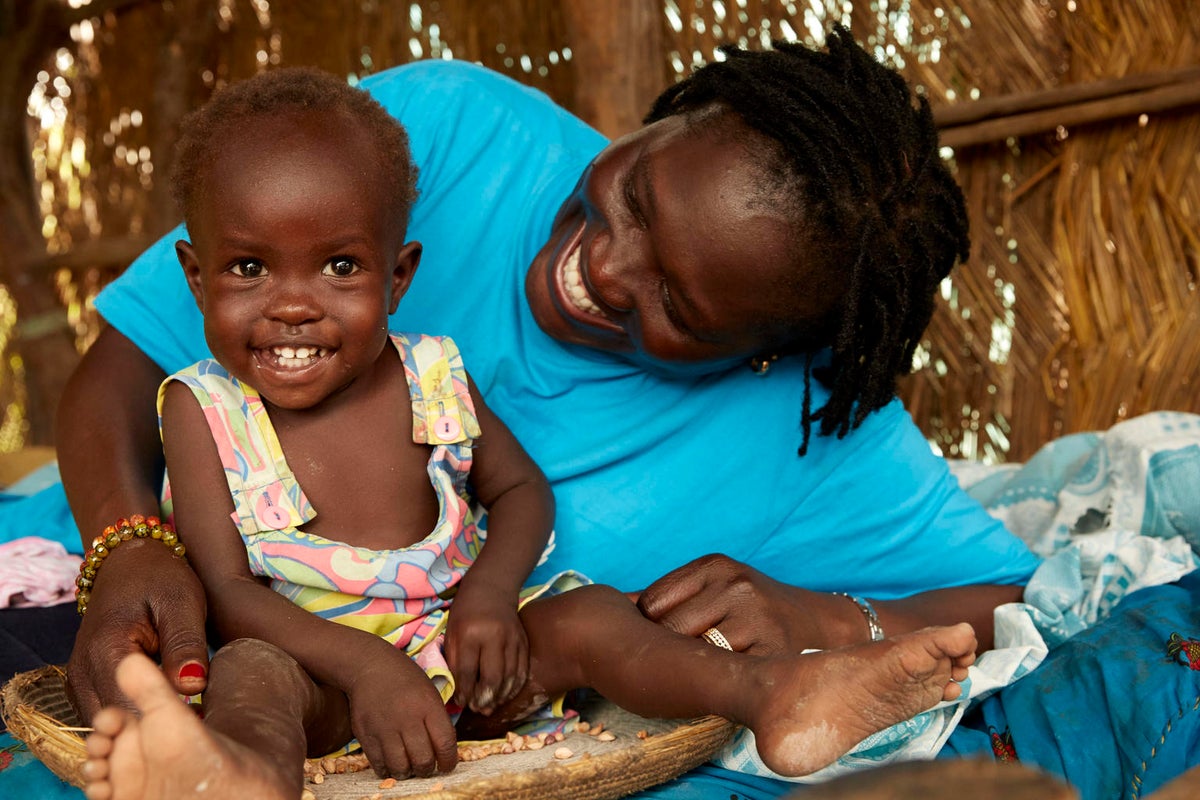
Give a child a reason to smile
- Severe acute malnutrition (SAM) is a very serious condition for children, but it is treatable. Emergency food like Plumpy Nut’ ® gives the children what they need to bounce back to health in just six to eight weeks.
Our team of UNICEF humanitarian workers will go down roads with no names, through war zones and up mountains to reach children most in need of supplies like Plumpy Nut’ ®.
From January till July 2019, UNICEF South Sudan has treated more than 144,000 children with SAM. Over 90 per cent of them have recovered. We know that when UNICEF can access and treat children, most of them survive and recover.
UNICEF health workers know how to bring a child back from the brink of deadly malnutrition. We have the global network to respond as soon as children need us in every region of the world. But we can’t do it alone.
What we’re doing is working. Every day, UNICEF donors make thousands of children like Adut smile because they’ve beat malnutrition. But emergencies are stretching our teams and resources to the limit. We've never needed your generosity more.
Related articles
Stay up-to-date on UNICEF's work in Australia and around the world



